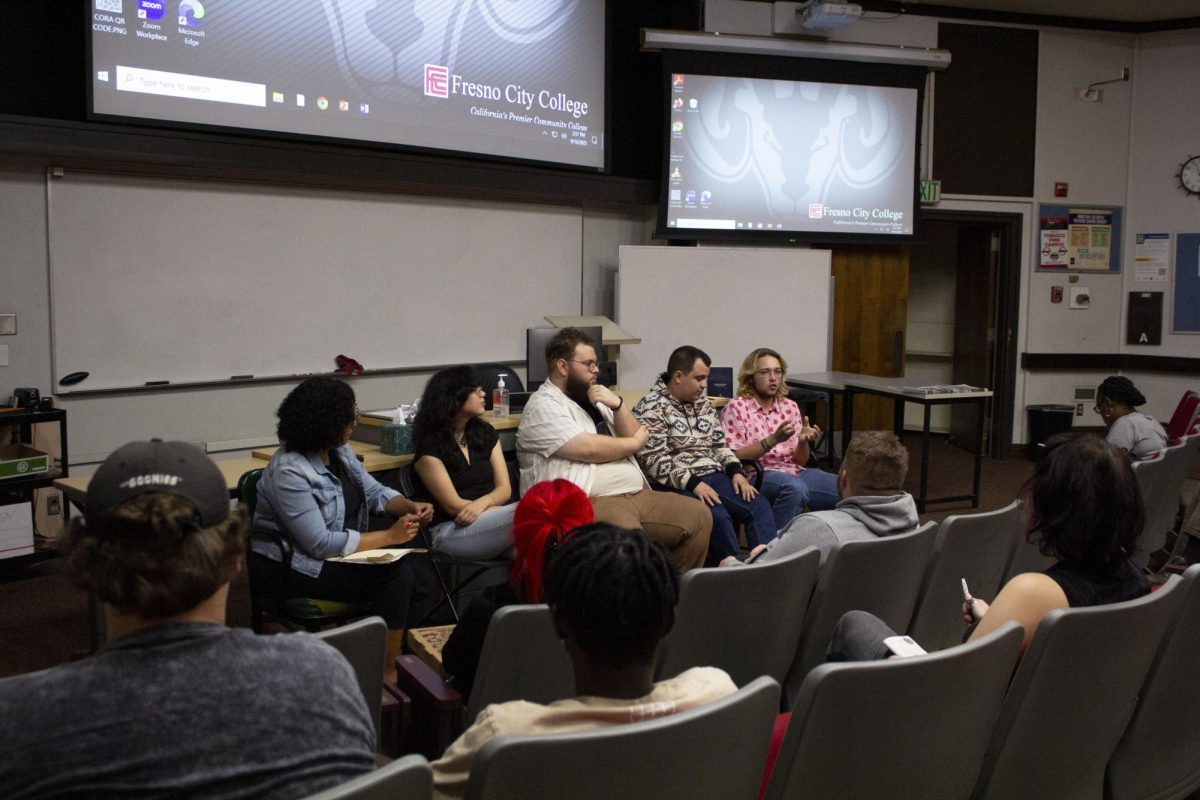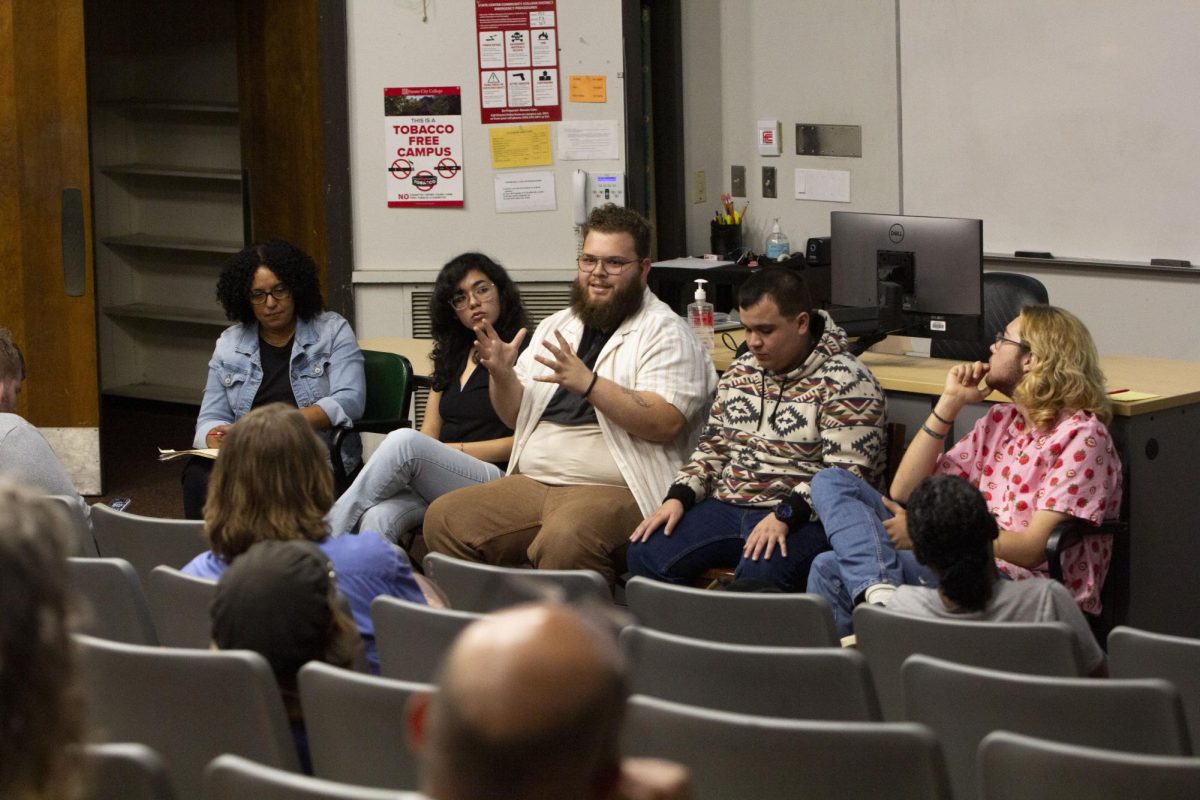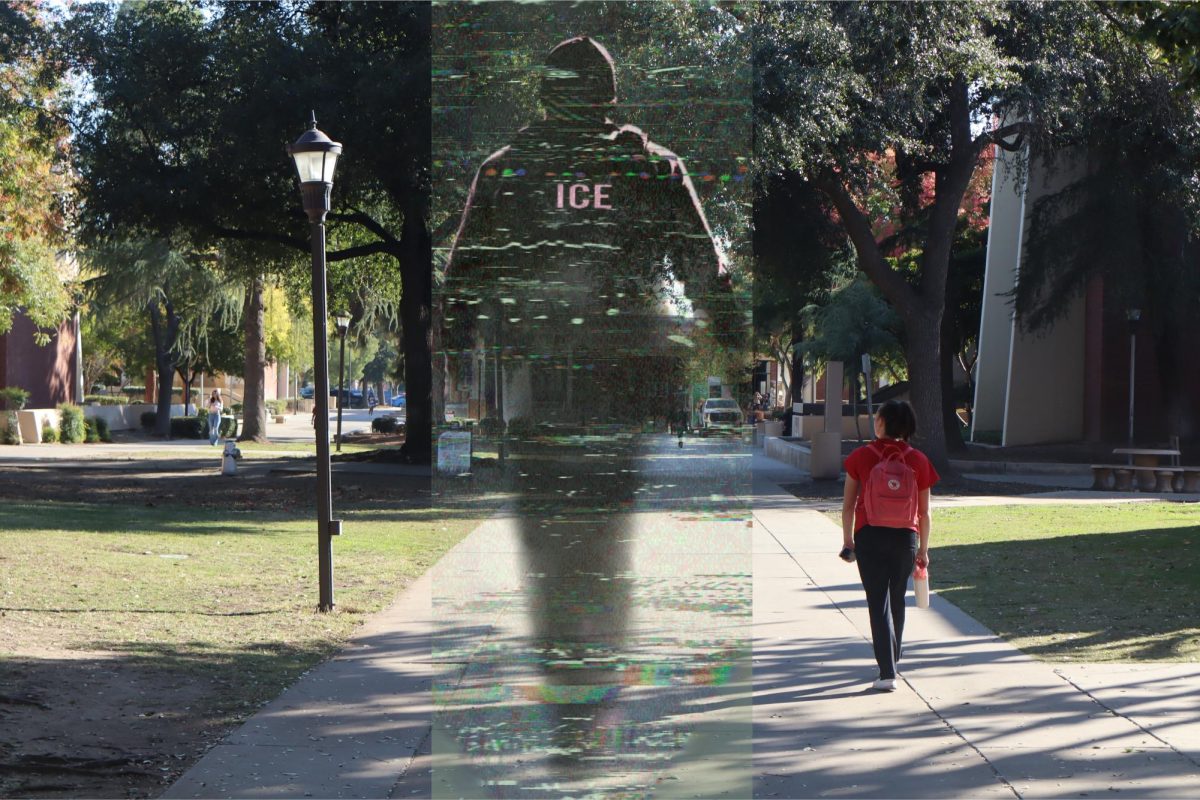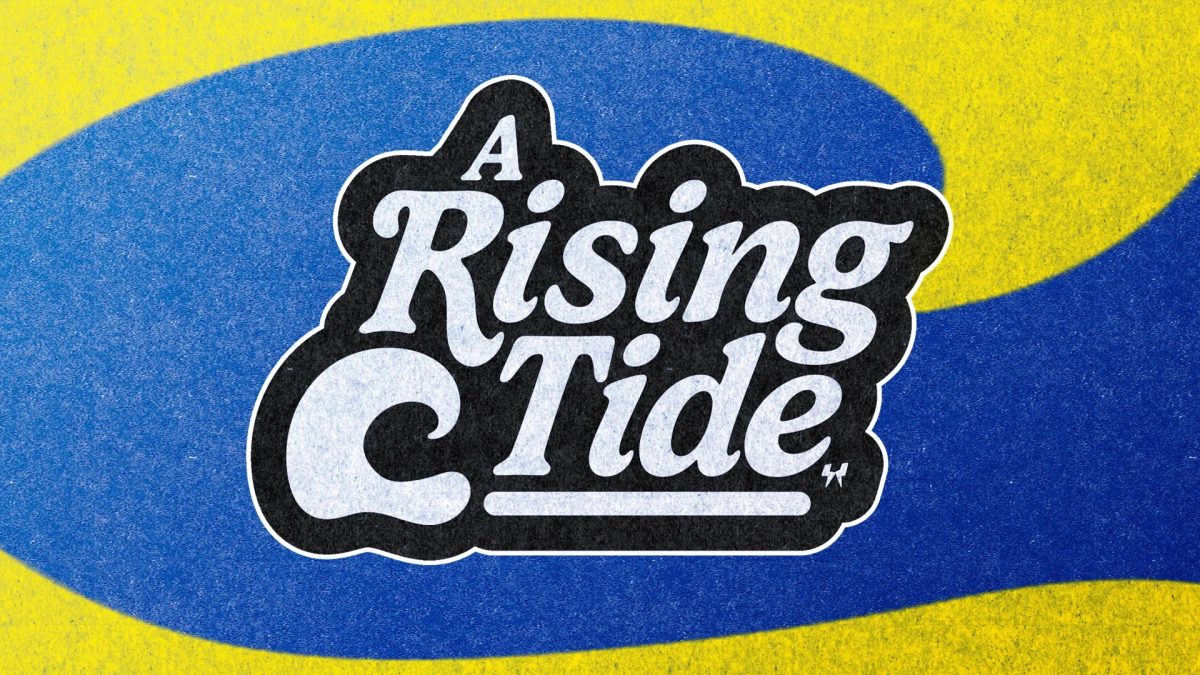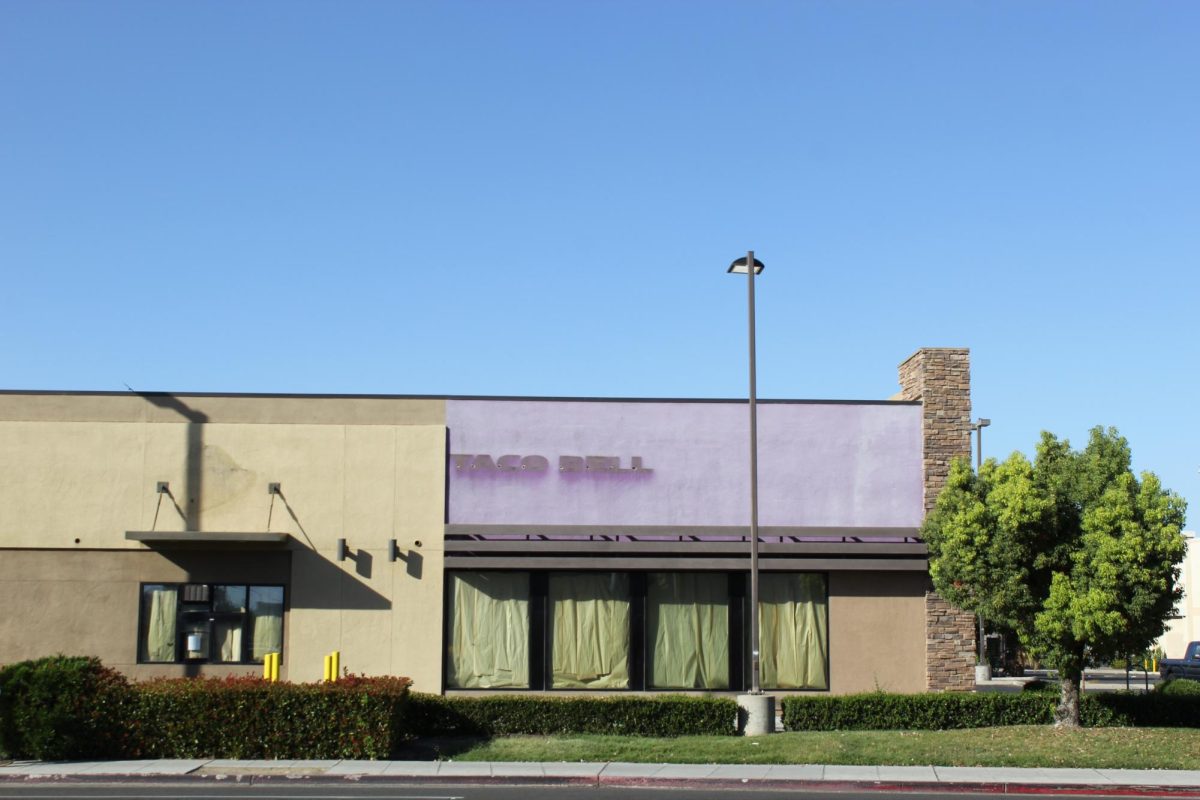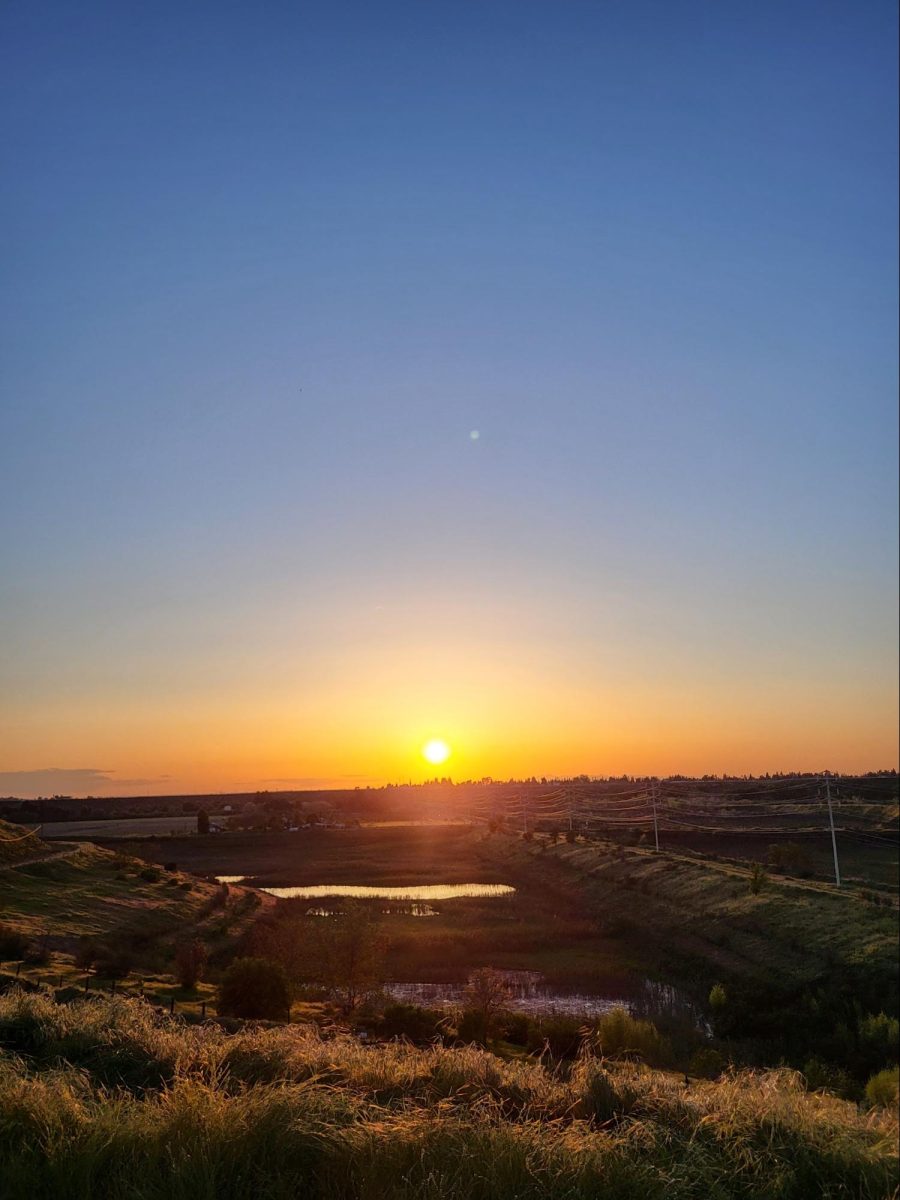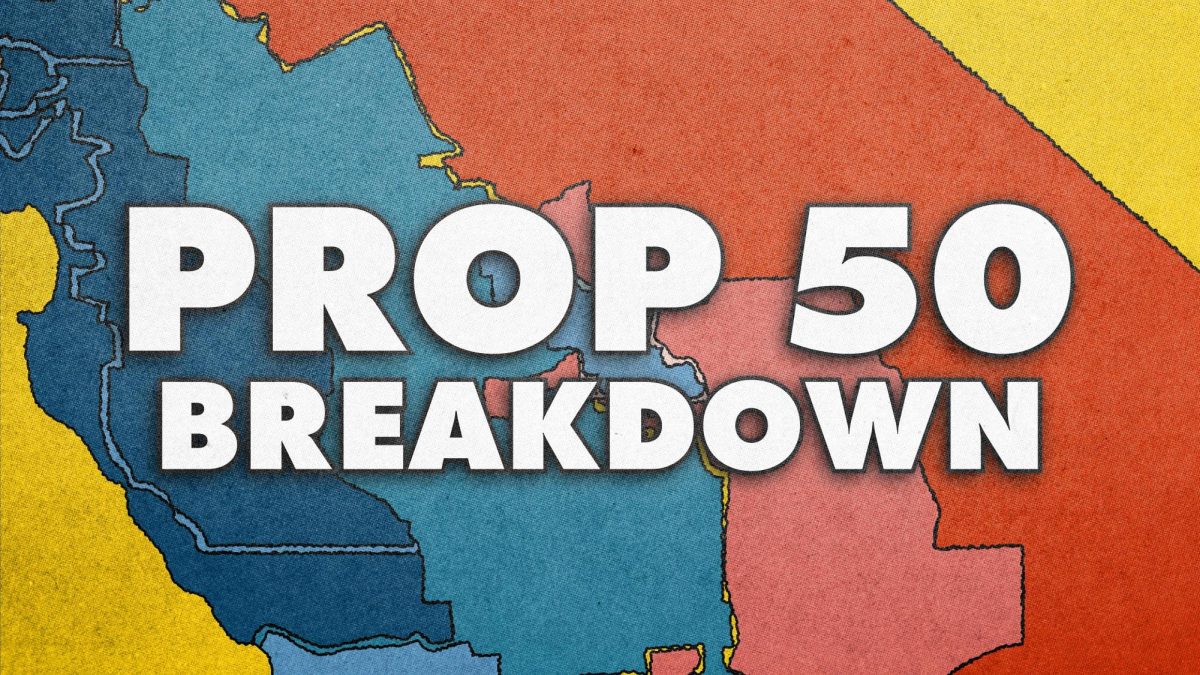The Fresno City Cross Campus Colloquium hosted its first panel discussion of the semester on Sept. 16, 2025. It featured current and former staff of The Rampage to discuss the impact of student media in the Fresno City College community.
Three panelists were current Rampage staff: Editor-in-Chief Logan Payne, Opinion Editor Juan Muratalla and Reporter Miley Araujo. Former Editor-in-Chief Josiah Poynter, now a senior reporter for The Collegian, was the final member.
To begin, they reflected on what drew them to journalism for their major and why they enjoy it. The element of storytelling and sharing others’ experiences were the main aspects that attracted them.
Araujo is in her first semester on The Rampage staff. She compared her experiences with high school journalism to The Rampage. She said the team at The Rampage is more present and the editors are supportive; that she is taken into consideration and is able to have her skills fit in their own place.
The Rampage has complete editorial independence, and editors decide what they want to cover on their platform, without interference from the college. This creates a unique environment where students of all skill levels can join and have the opportunity to identify and develop their own skills, contributing to their community.
The editors of the panel said that comfort and trust are important to establish in order to have a good newsroom environment. The first few weeks of a semester are spent assigning stories to ease new staff in. Editors share what they know and teach the basics of the journalistic process until reporters are able to come up with and write stories by themselves.
“The process is vital, not just the event,” Poynter said.“It’s important that people understand there is a process and chain of command that stories go through,” and “there is no good journalism without trust in the newsroom.”
Balance is also important, especially for new reporters. It can be difficult to balance school, work and journalism, which is why the editors focus on “being a friend and leaving the door open for help,” Payne said.
In 2025, most college students get their news from social media. This way of receiving news is fast but can be unreliable, and important stories can be reduced to just headlines. Payne said The Rampage works to ensure its coverage is timely and correct without devolving into entertainment. Poynter drew a line between “content” and journalism: content is made to entertain and gain views, while journalism involves a process aimed at explaining causes and serving the public.
The panelists urged attendees to watch for their own biases when consuming news. Payne advised readers to be aware of their emotions when using social media and try to give it a purpose. Poynter said to avoid just reading headlines and actually read articles in order to get a better picture of the full story. Understanding one’s susceptibility to falling down the hole of sensationalism is the first step in avoiding it, he also advised.
“So what I like to do is very simple. I just read the article, but every time I see it, I kind of come back to it, look at the comments, and then you see what everybody else is thinking. That’s when you can kind of see where you’re at,” Poynter said.
Muratalla believes the opinion section differs from other sections because it starts with the writer. As editor, he gives his staff resources, teaches journalism fundamentals and makes sure they care about their topics. He said what makes a good opinion is a strong grasp of the fundamentals of journalism, the reporter’s voice, and awareness of its impact, whether it’s a “top 5 restaurants list” or a political column.
Unlike other sections, opinion allows writers to choose subjects and express personal views without the same constraints. Muratalla called it a gateway to share how issues affect both writer and readers. Strong opinions feel like a conversation and let audiences hear the reporter’s voice.
Poynter emphasized that journalists also have opinions and need to know how to navigate the line. He said journalism gives “voices to the voiceless” and requires standing by one’s views, whether the platform is large or small.
The panel closed with the panelists reflecting on what they’ve learned through their time at The Rampage. Payne said he discovered he is less introverted than he thought and enjoys building relationships. Araujo found a deeper love for writing and felt journalism confirmed where she belonged. Poynter said he learned the value of communication, criticism and collaboration for growth. Muratalla said he gained confidence in his abilities and realized journalism is the right path for him.
